Scotland is a great northern land of lush, windswept cliffs; haggis; scotch whiskey; and, of course, Scotland’s most famous resident: a bagpipe-playing, kilt-wearing lake monster named Nessie. The Scots have a long history of Kings and Queens, and a shared culture rich with music, literature, and language. And while the Scots most certainly form a nation with a shared identity and culture, travellers to this place often wonder: is Scotland a country?
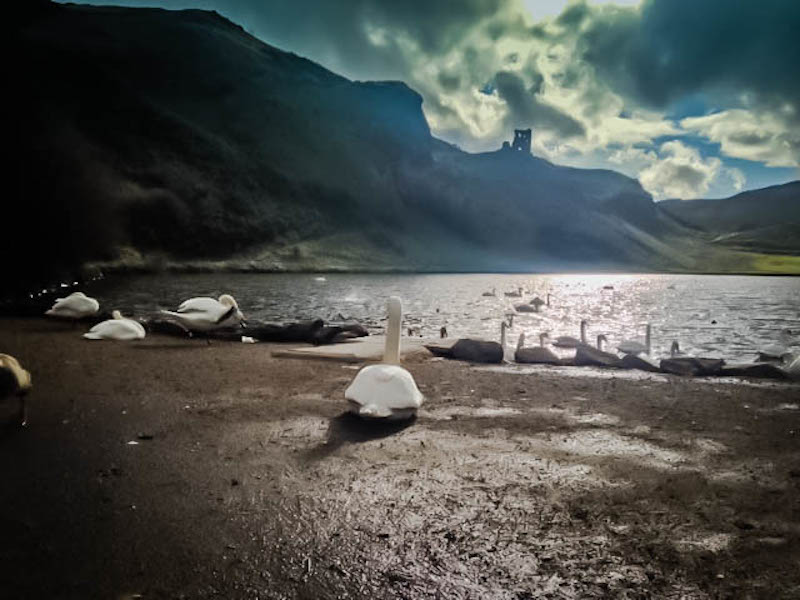
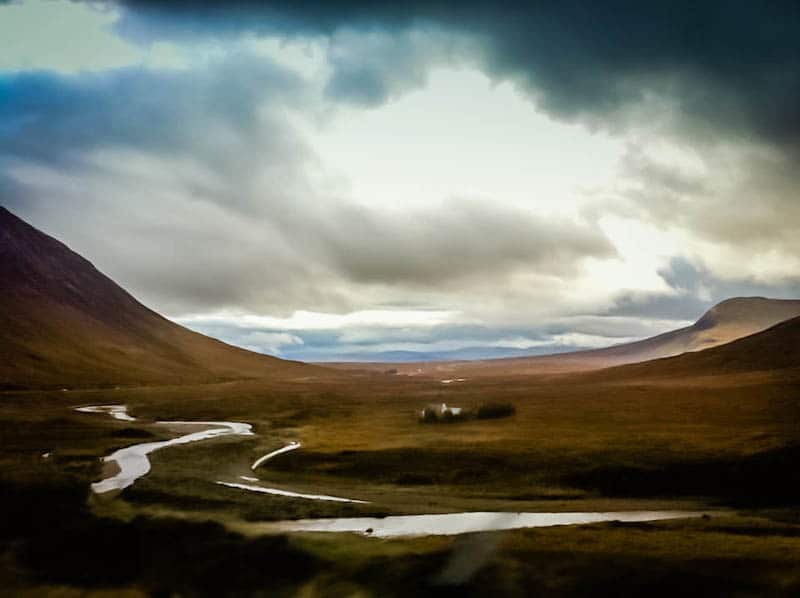
We’ve arrived in Scotland just six months before the Scottish Independence Referendum 2014, and both sides are ramping up their rhetoric around the question, “Should Scotland be an independent country?” From the Scots we’ve talked to, it’s unlikely the Yes vote will win the day, and many seem okay with that outcome. That said, many Scots seem to hope for a close race between the Yes and No votes: they want to see the UK sweat, with hopes that a close race will provide the impetus needed for increased power for the Scottish parliament.
Wait…whaaaaaaa? Scotland has it’s own parliament? Doesn’t that mean Scotland is a country? Sort of. The phrase independent country is a key point within the referendum question. As we shall see below, Scotland is a country, just not an independent one.
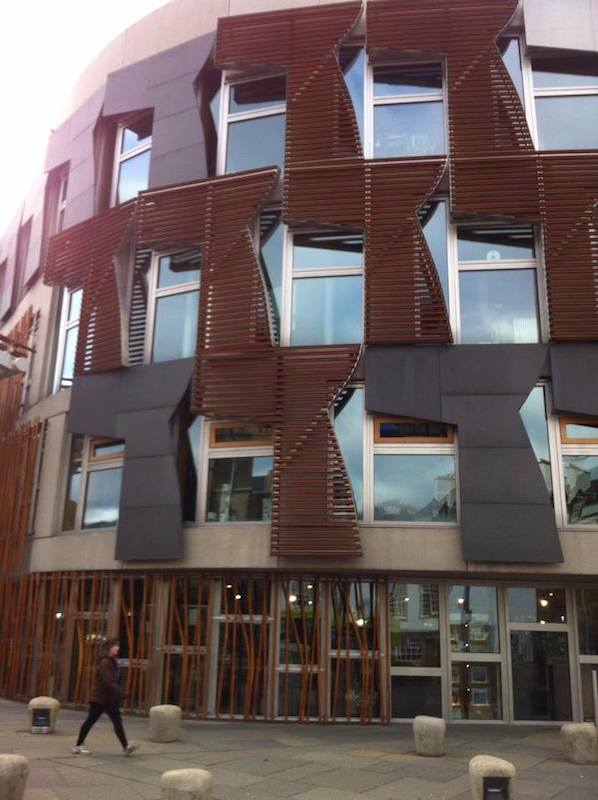
Country vs State: A Key to the Is Scotland a Country Question. For those of you who’ve tragically forgotten the lessons of your first-year Political Science classes, let’s begin with the basics: when is a country a state? A state (the capital S state, not to be confused with, say, Texas or West Virginia) is a sovereign, self-governing territory. State and independent country are synonyms; state and country (without the independent qualifier) are sometimes used as synonyms, and sometimes not. That makes the Is Scotland a Country question slightly more confusing.
The 1933 Montevideo Convention took a crack at defining statehood in international law as having a permanent population, defined territory, government, and capacity to enter into relations with other states. While this original definition more-or-less stands today, the notion that sovereign states cannot be dependent upon or subject to other states or powers has also crept into the meaning.
Using this definition, Scotland checks some, but not all, of the boxes of statehood/being an independent country: permanent population (check), defined territory (check), government (sort of check – Scotland has a parliament, but its power was given to it and is curtailed by the UK parliament), and independence from other states or powers (big fail). Because Scotland doesn’t meet all of the criteria, international law would say that Scotland is not a sovereign state, nor is Scotland an independent country.
But wait! That doesn’t mean Scotland isn’t a country. A country is geographically distinct (check) and may be sovereign, occupied, formerly sovereign, or a region associated with previously independent people (big time check).
So, is Scotland a country? Yes. Cue the applause. Scotland is a country, just not an independent country. Hence the forthcoming referendum, and its use of the word independent.
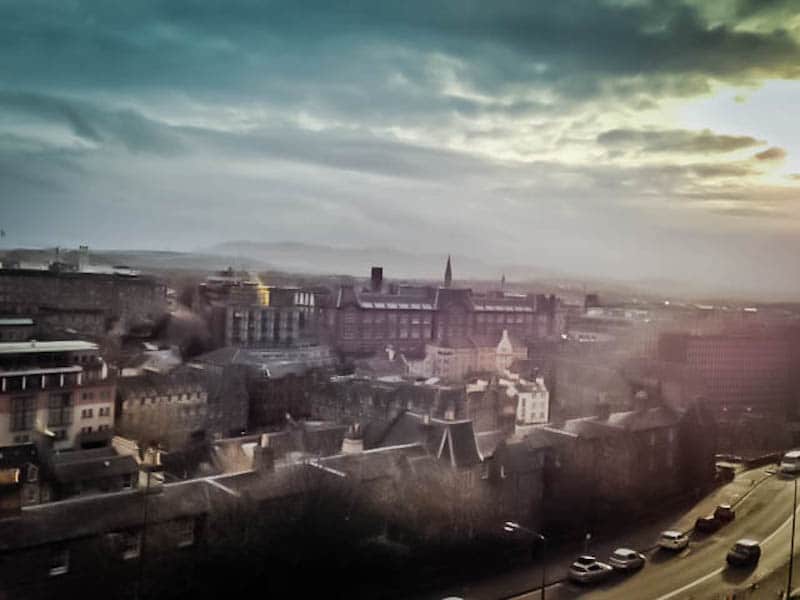
Glad That’s Sorted. But What Does it Mean in Practice? Here’s where your mind starts to wander, and you think: Wait! If Scotland is a country, what the hell is the United Kingdom? And Britain?
The United Kingdom of Great Britain and Northern Ireland (the UK) is a sovereign state made up of four countries: England, Scotland, Wales, and Northern Ireland (not the Republic of Ireland, which has been a sovereign state and independent country since 1922). In this way, the UK is an independent country made up of four non-independent countries. Don’t worry: this blows my mind, too.
Great Britain is an island in the Atlantic ocean. England, Scotland, and Wales are on the island of Great Britain. Ireland is a separate island that lies west of Great Britain; thus, Northern Ireland is not a part of Great Britain. Great Britain is also used as a political term to mean the entire territories of England, Scotland, and Wales (including their outlying island territories, which are not a part of the island of Great Britain, but are included in the political meaning of the term). Again, Northern Ireland is never included in either definition of Great Britain.
If you’re still confused, I suggest you consult someone far funnier than I: I give you, The Difference between England, Britain, and the UK.
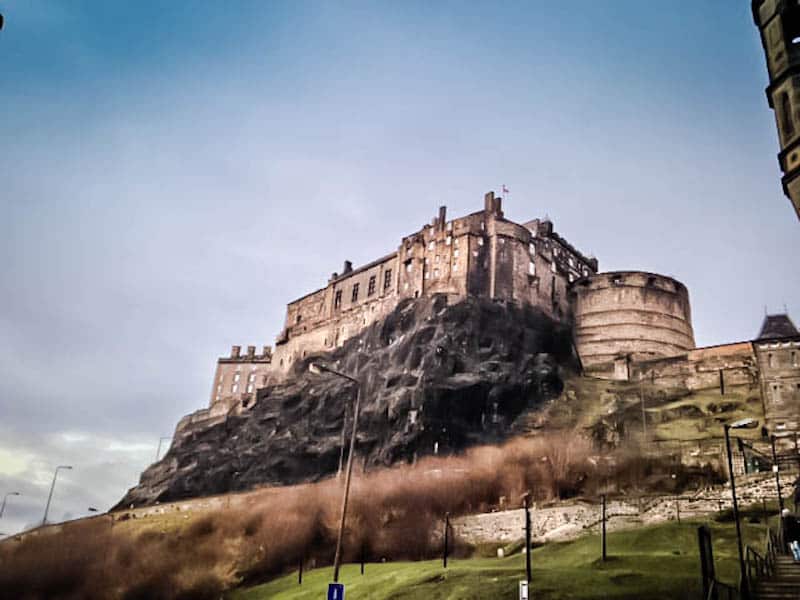
But Scotland used to be an independent country, right? I mean, it had its own kings and queens. When did Scotland stop being an independent country? Aye. Scotland used to be an independent country (the Kingdom of Scotland), and was recognized as such in numerous treaties. These treaties weren’t always abided by, and the Wars of Scottish Independence (1296-1328 and 1332-1357) involved a series of brutal battles with the Kingdom of England, which eventually resulted in Scotland retaining its independence. Yay, right?
Scotland technically remained independent until The Treaty of Unions of 1707, although the 1603 Union of Crowns went a long way in tying the Kingdoms of England and Scotland together.
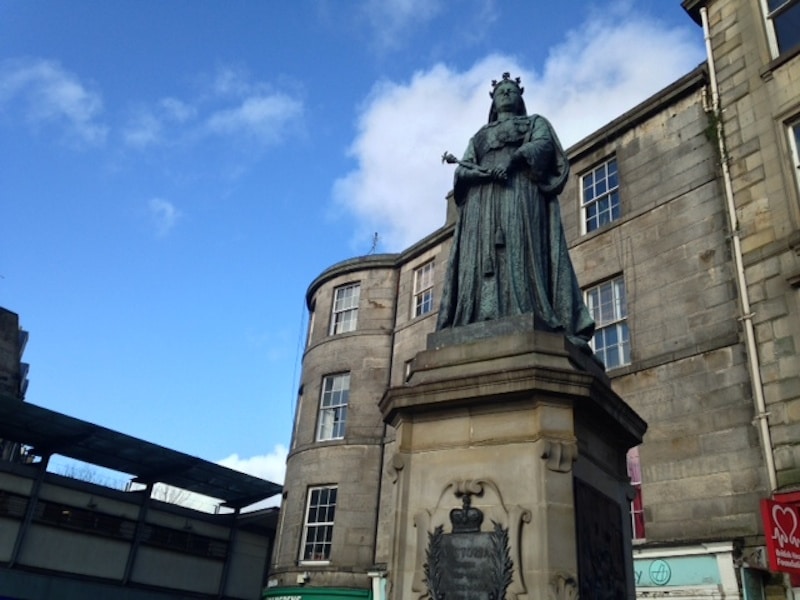
When Queen Elizabeth I died in 1603, she was childless; James VI, King of Scotland (and son of Mary, Queen of Scots) was her preferred heir. Upon Elizabeth’s death, James ascended the thrones of England and Ireland (becoming James I in England and Ireland, and James VI in Scotland) in what is known as the Union of Crowns. All three states became unified for the purpose of foreign diplomacy, but England and Scotland remained individual sovereign states, with their own parliaments, laws, and judicial systems.
Then, in 1707, The Treaty of Union was signed, leading to the creation of the United Kingdom of Great Britain by the Kingdoms of Scotland and England (including Wales). Queen Anne went from being the Queen of England, Scotland, and Ireland to the Queen of Great Britain. The parliaments of Scotland and England merged to form the Parliament of Great Britain, marking the end of Scotland (and England) as an independent country. Ireland remained a separate kingdom, legally subordinate to Great Britain until 1784.
Fast forward to the 1990s. In 1997, the Scots voted to have their own parliament devolved from that of the UK, and the 1998 Scotland Act (an act by the UK parliament) did just that: it established a Scottish Parliament, Scottish Executive (the Scottish government) and specified which matters over which the new Scottish parliament would not have control. In 2012, another Scotland Act further devolved powers from the UK parliament to the Scottish Parliament.
What About the Upcoming Referendum? This brings us to the upcoming vote, in which Scots must decide whether to become a wholly independent country or not. As of today, it seems that the No vote will win out, although many moderate Scots seem to be hoping for a close race, in the hopes that the threat of future separation will encourage further devolution of power from the UK to Scottish parliament.

Great job, Katie!!!! You fully explained what it took my family 20 years to try and articulate to myself, my siblings and cousins. It’s kind of like Quebec in Canada, but not.
Ha ha! That’s hilarious. Exactly like Quebec, except not really, except…it kind of makes my head hurt :)
Great post, very amusing :) Either way, it’s a great country to visit!
Thanks Gina! We have just been in Edinburgh so far. Looking forward to going out and seeing more of the country too!
Similar to Québec but without the crazy language laws :)
It’s kind of hard to get your head around, isn’t it? A country of countries? It just doesn’t really make sense in the Canadian context…it certainly hurts my brain :)
Pingback: Welcome to Edinburgh: Timelapse Video of Edinburgh Scotland
Pingback: Budget Travel Tips for Isle of Skye & Isle of Lewis and Harris - Wandertooth